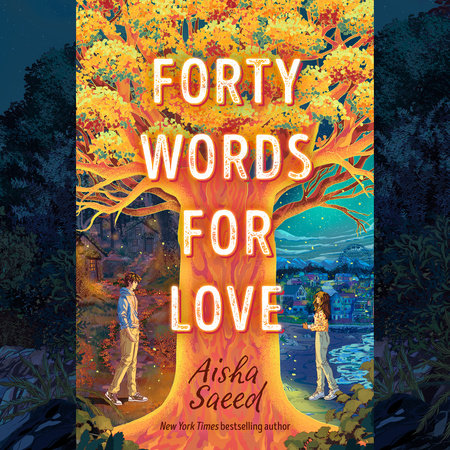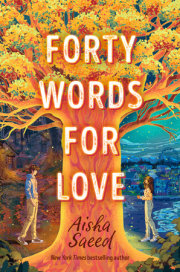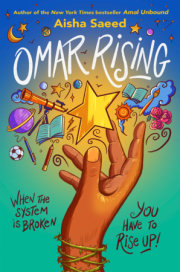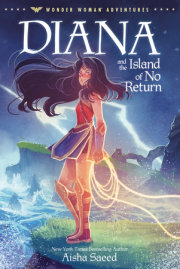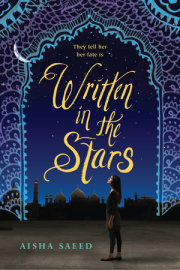Before one Raf
The first clear moment Raf recalled from that night was the sound of laughter. Hers.
He’d heard her easy laughter a million times before. But that night it made his pulse quicken. Picking up his pace, his feet pressed into the packed sand beneath him. He needed to speak to her. Before he lost his nerve.
Faint music from the Moonlight Bay Festival carried over from a distance. He thought he’d glimpsed her slipping away from the celebration. She’d probably grown weary of the crowds. Maybe she’d gone looking for him. How would she react when he finally told her how he felt about her?
The golden leaf on his wrist pulsed against his skin. Raf frowned. This birthmark—the one physical difference between the Golub and the locals—only ever warmed in warning, when they’d strayed too far from home.
The leaf protects you—it does so at all costs. How many times had Tolki Uncle said this? But right now, he stood mere steps from his forest home.
Raf slowed. All thoughts of his leaf vanished. There she was. Yas. Partially obscured by a grove of palmettos, with her back pressed against a tree. She wore a white sundress. The star-shaped necklace resting against her collarbone glinted in the moonlight. Her dark hair was loose around her shoulders.
Before he could take a step toward her, Raf realized she was not alone.
Her boarding-school-raised summer neighbor, Moses, heir to the Holler Candy fortune—came into view. Moses drew closer to her. Laughed. His arms encircled her waist. She looked up at him. Their foreheads touched.
Heat flooded Raf’s face. His chest constricted as he stepped back. Why hadn’t Yas told him? They had been best friends ever since his family fell, shivering, from the Golub tree over a decade ago. They shared everything with each other. Didn’t they?
But this was a mercy, wasn’t it? If nothing else, he had his answer. He didn’t even have to ask.
A sudden jolt of pain burst from his wrist. Electric currents shot through his body. He doubled over. Tears pricked his eyes. The burning grew sharper by the second. White-hot. As if the sun itself had burrowed within his skin. He bit his lip until he tasted blood.
Panic bubbling, Raf staggered toward the shoreline. Only then did he see that the ordinarily sleepy pink-and-lavender sea had transformed. Enormous dark waves rose in the distance before crashing to shore. The color of charcoal. Howling winds whipped through his hair. The chaos around him mirrored the chaos within. What was happening?
Then came the scream. High-pitched. Wailing. Clenching his jaw, Raf ran until he found himself before the towering specter of Holler Mansion and saw the image that would never leave him for as long as he lived: five-year-old Sammy Holler lying by the shore. His nanny, Melinda, knelt over his frame, her body racked with sobs. Sammy lay facedown on the sand. He didn’t move.
As though playing a part in a movie, Raf numbly grabbed his phone. Fingers fumbling, he dialed for an ambulance. He wasn’t sure when Moses and Yas arrived. When the red and white ambulance lights at last flashed in the distance. A team of paramedics lifted Sammy’s limp body onto the stretcher.
One thought ran in a loop in his mind:
This can’t be real. This couldn’t happen here. Not in Moonlight Bay. They’d fix Sammy. That’s what doctors did. That’s how stories like these ended. Sammy couldn’t die.
Raf couldn’t be sure how he made it back to Willow Forest, to Tolki Uncle’s door, practically falling into his arms. He only knew that Uncle would have the answers. He always did. Uncle wrapped Raf’s wrist in a soothing compress. He brought him a warm cup of almond tea. A blanket. It was only when the teacup clattered against its saucer that Raf realized he was trembling.
Through ragged breaths, he managed to get the words out: Sammy on the damp beach. The sea churning dark and deadly.
Uncle’s expression grew grim. He ran a hand through his hair—pure white, like the snowcapped mountains of Golub they’d left behind.
“What were you doing out there, son?”
“I . . . I was looking for Yas.” Raf’s shoulders slumped. Raf had to tell him. Of course he did. Uncle needed to know.
“Raf,” Uncle said slowly. “Were you going to—”
“I didn’t say anything,” Raf said quickly. “I saw her and Moses, and . . .” He looked at his leaf. Gold and green as ever. “It’s not like she feels the same.”
Tolki Uncle was quiet, translating Raf’s broken words into meaning. Shame coursed through Raf. His father had died three years earlier, but Tolki was a father figure to all the Golub who ended up within the forest of Moonlight Bay.
“What happened when you saw her?” he finally asked.
“That’s when it began to burn.”
“Had anything been amiss with the water?” Uncle hesitated. “
Before you saw Moses and Yas?”
“I don’t think so.” Raf’s mouth grew dry. “D-do you think my leaf had something to do with this?”
A moment of tense silence passed.
“This is my fault,” Uncle finally said. “I warned you away from Yas. I had hoped that would be enough.”
“You said I could never be with her because we were returning to Golub soon,” Raf said shakily. “But, Uncle . . . it’s been ten years, and—”
“I didn’t tell you the rest of it,” Uncle interrupted. “Just as leaving the safety perimeter erases one’s leaf, choosing to be with someone who is not of us—that too can have devastating consequences. Though, until now, I hadn’t been certain what sort of consequences.”
Raf thought of the waves. The darkness. What he had almost told her.
“My leaf . . . It couldn’t have done all
that.” Seeing Uncle’s ashen face, his voice grew smaller. “Could it?”
Uncle didn’t reply, his silence its own answer. Raf sank his head into his hands. He felt light-headed. Had his birthmark disappeared, he’d have lost any ability to return to Golub or to remain with his own family within their forest home. Lost leaves were catching.
Before they could speak more, a fist pounded against the front door, followed by a shout. “Come quick! The Golub tree is opening! Someone is here!”
Raf froze. New arrivals? The tree hadn’t opened in years. Gripping his cane, Uncle rose. He placed a hand on Raf’s shoulder and leaned close.
“We will speak more on this later, but not a word to anyone, Raf. Ever,” he said gently but firmly. “Do you understand?”
Raf looked at his wrist. The leaf was calm now, a glittering etching on his skin once more.
The leaf protects you—it does so at all costs. Raf Javan hadn’t said a word to Yas. But a price had been exacted all the same.
After two Yas
Yas knew her father wasn’t there. She didn’t need to see it with her own eyes to know. Still, she stepped onto the salt-rubbed back porch and slipped on the flip-flops she’d left resting on the feathery welcome mat. The clouds looked thinner than they had in months, and wisps of sunlight streamed through their gray pockets, casting spotlights on the sand below.
Glancing at the driveway, she saw that, sure enough, there was nothing but gravel where her father’s gray sedan should’ve been parked. The one with rusted spokes and a cracked leather interior he’d driven cross-country to college. The same car her mother refused to sit in because the seats sagged so much, you felt each unearthed pebble that bounced against the metal as it drove.
It was gone. He was gone—again.
She took the steps down to the near-empty stretch of sand. At first she’d shrugged off the lit-up vacancy signs hanging in the hotel windows and the deserted bed-and-breakfasts dotting the beach. Summer was slow because of the forecasters predicting rain, spooking visitors who feared a repeat of the tropical storm that had raged through the year before. The one that battered the Ferris wheel, twisted the pier like a rag doll, and pummeled the welcome mural framing its entrance. But no storms came. It hadn’t so much as rained since late May. Not a drop for the thirsty flower beds around town. Still, no umbrellas dotted the sand. No children raked seashells into buckets or dug sandcastles while parents with wide-brimmed hats looked on. It was the last week of June and no one was here.
Looking at the sea, could she really blame them?
Patty was here, though. At least there was that. She waved to Yas from her spot at the edge of the shore, flashing her bubble-gum smile. She’d been coming each summer and renting out a room at the Iguana Motor Lodge since before memories were a thing Yas could grasp. Patty wore a floral slip and reclined on the same green chair under the same canvas umbrella Iguana provided free of charge every year.
Yas had taken a step toward the shore, when something sharp and familiar poked at the bottom of her sandal. Kneeling, she picked up a seashell the size of her palm. It was white like dusted sugar and smooth as polished granite. Blowing off the sand grains, she turned it over, checking for cracks and bruises. There were none to be found. It was perfect. Yas hesitated before slipping it into her pocket.
The murky, swirling gray sea in the distance looked the same as it had every day these past ten months. Yas studied the choppy waves for glimmers of color to surface, a pop of pink or lavender, a promise that the pastel waters lingered beneath the surface somewhere. It was a habit, nothing more. As expected, there were no hints of what once was.
The Weepers huddled in the distance, the ocean lapping at their ankles. Every day they came. Their heads bowed. Their tears dripping into the sea, willing the ocean to feel their pain. To bring back what was.
How they’d decided
this was the solution remained unclear. Yes, there were legends passed down from previous generations that tears could brighten the sea, but there was just as much lore advising complete stoicism.
All of it was ridiculous, though. The sea was the
sea—an inanimate body of water. What did it care for their tears? No one understood why the pink-and-lavender waters had appeared and no one knew why they’d left. Couldn’t these Weepers see, nearly one year later, that nothing had changed?
There
were far fewer of them now. Only Kendall, Mateo, Melinda, and Olive remained. Yas had known them all before. In a town like Moonlight, it was hard to not know everyone. But like everything else, they’d changed. Kendall, who once presided over city council; Mateo, once a renowned artist; Olive, the owner of the now-shuttered bookstore; Melinda, Sammy’s nanny—all of them were Weepers now. When would they too stop hoping?
Practically everyone in the high school’s graduating class scooted out of town last month, their diplomas still warm in their hands. Some started summer sessions as far away as they could get, and—like her friend Hisae, who was now a waitress in a nearby town—left for work. Soon Raf would leave too. Surrey University was only fifty miles from Moonlight but far enough for him to no longer be an ever-present presence in her life.
Her fingers instinctively trailed her collarbone for the star necklace she’d once worn each day without fail. She and her mother crafted it together when she was fifteen. Of course, now she grazed only skin.
Pulling out the seashell from her pocket, Yas stole a glance toward her home. Her mother’s rules for the work they did were immutable. Only shells collected from the sea could be crafted into necklaces to soothe anxious hearts. Every day, people crossed the threshold of their home. They settled into the nook off the guest room. They wept onto carefully curated shells, which would later be sanded and shaped into stars and worn as necklaces to soothe their suffering. There was an alchemy between the sea and the shells that her family had melded. Before her mother, the work had been her grandmother’s. Before that, her grandmother’s mother. Eight generations of Khanani women winding their way down to—one day—Yas.
She’d once eagerly painted each star before it left their home. Delicate birds. Flowers. Yas had loved the work. The art of catching and cutting and sanding and smoothing. It was meant to be her legacy, but now all Yas could think when she saw a customer clasp on a necklace was: Didn’t they notice they still ached? Their work was not a religion. She did not worship the sea. But she’d lost her faith all the same.
Yas knew she should toss this shell—her mother claimed to have premonitions about such things—which shells would heal and which wouldn't—but it was perfect for star making: nearly flat, with just a hint of curve, thick and sturdy. The size of her palm. The sort that had been plentiful once. Lately the seafloor was littered with brittle shards, crushed shells that crunched painfully beneath her feet. This one only needed a once-over sanding to smooth it out. How could she
not hold on to it?
Besides, Yas looked at the sea and thought,
even if I had found this within the sea's depths, it wouldn’t have made a difference. There were no such thing as premonitions, and certainly no healing properties were within the water’s depths anymore, if there ever had been in the first place.
The sound of hammering pierced the morning air. Two workers in cargo pants and plastic helmets laid out blue tarps alongside Holler Mansion next door. Another perched atop the roof, yanking off weathered salmon-colored shingles and flinging them to the ground below. A noisy jackhammer tore into concrete on the back patio.
Since the Holler family left last year, Yas had not seen so much as a cat slink past the property. Raf had dared Yas to slip through the crumbled brick gate with him just last month. They’d dangled their legs at the edge of the abyss of the once aqua-blue pool. The bell lights strung overhead on cracking lattices gathered dust on their bulbs. The exterior, once buttercream yellow, faded more and more each month, battered by the salty wind that didn’t care if the owners had packed up and moved away.
“Figured out what they’re up to yet?” a voice said over the din.
Raf. He walked along the shoreline toward her. Her shoulders unclenched. His stonewashed jeans were rolled just above his ankles. Sand clung to his bare feet. His favorite hoodie covered his head, but his brown curls framed his forehead like they did when they’d first met in first grade, after his family arrived through the enormous ice-cold Golub tree in Willow Forest. Everyone had gawked at his mop of brown curls and scraped and bruised arms when he stepped into their class. They’d edged away when he approached the circle for morning meeting. Their eyes fixed on the one thing that differentiated him from the others in the room—the beautiful shimmering leaf etched on his inner wrist—delicate and green along the edges. She’d been so mesmerized, she’d immediately pulled out a marker and tried to make her own. Ms. Stein asked Yas to be his buddy. Eleven years later, the assignment had stuck. Raf got Yas the way only someone who knew you before you learned long division could.
“What’s the Golub word for ‘annoying’ again?” She nodded toward the house.
“Lesan.” His dimple deepened. “That constant hammering is a lot.”
“Any more ideas what they’re up to?”
“Someone must’ve bought it. Fix it up, and who wouldn’t want it?”
“Raf. I’m serious.”
“Me too,” he said. “It’ll come back, the water. When it does, they’ll have gotten a house with one of the best views in the world for pennies on the dollar. Rich people love getting a good deal.”
She fixed her eyes on the sea.
Not this again. Yes, in the past, the colors of the ocean had shifted from time to time from the brilliant pink and purple to dimmer versions for seconds or moments at a time. In the weeks leading up to the tragedy, there’d been a few mornings of gray that’d lasted several hours, but the colors always returned by the afternoon. Never in the two centuries of recorded history of their town was there
any evidence of their sleepy, warm-watered bay shifting to colder temperatures with dangerous riptides swirling within. In the early days, she’d combed the town’s archives in the damp library on the edge of town. Praying that history would provide hope. A cure. But she’d only found contradictory legends and lore. Nothing grounded in science. Nothing that could truly help. In the end, her question was one without an answer.
Have faith, Raf always said. Droughts could last for years, why not the ocean losing its spark? This was life. Things ebbed and flowed. The Golub held on to hope like no one else. It was their North Star.
When they first became friends, Yas listened with rapt attention to his tales of Golub. Trees with gold-flecked leaves. Playscapes with slides and climbing structures carved entirely of ice.
We’re only here for a little while, Raf used to tell her.
Until things get safer and we can go home. But with each passing year, their Golub tree only grew frostier, and Raf didn’t talk about leaving as much anymore. By now, he’d lived on this side longer than in Golub. He was headed to university soon.
Yas didn’t blame the Golub for hoping, but she had lost her own hope for Moonlight. Yas knew. It was a knowing she felt in her bones. It was why she’d long abandoned the star necklace she once swore by: Hoping for the waters to return was futile.
When she met his gaze, he shrugged.
“The workers are good for business, at least there’s that,” he said. “We sold out of waffles already. Bura just went on a run to restock the flour.”
“You didn’t see my father around town, did you?”
“He’s gone?”
“He left before I woke up.”
Her father used to stick notes on the fridge to let her and her mother know he’d dashed to Jake’s to grab milk and eggs for a pancake breakfast. Now he disappeared for hours at a time, casting his job-hunting net farther and farther.
“I’m sorry, Yas. I’m sure he’ll find something soon.” His hand grazed her bare arm for the briefest of seconds before pulling away. But not before a jolt of electricity passed through her.
She ignored it, of course, as she always did, but she couldn’t help but wonder: Did he feel it too? She studied the brown of his eyes, the set of his jaw. If he did, his face showed no trace of it.
She cleared her throat. “Any word on Kot?”
“Not yet.” His expression fell.
A layer of heaviness had settled over Raf since Kot left without explanation. He and his sister, Nara, had the misfortune of arriving to Moonlight Bay through the Golub tree the same night Sammy died and the ocean grayed.
Gray like their eyes, the townspeople would whisper. Just the thought of it made Yas’s blood boil.
This remained the hardest change for Yas to witness. The Golubs had been trading partners with Moonlight Bay for centuries—they once traversed regularly through their enormous tree in the center of Willow Forest. Their spices, minerals, gems, and prized fabrics were coveted in Moonlight and beyond, and they’d always been received as revered guests. Yas thought their town was special to receive visitors from lands beyond their own. Jasmine Cove to the north had portals through carved glaciers for the Dilcut. To the west were the sand dunes and caves for the Minas and the Smus. Moonlight Bay had the Golub tree.
When the weather in Golub turned, eighteen years earlier—homes buckling beneath sheets of ice, frozen freshwater refusing to warm for drink, their gardens unable to grow—the people of Moonlight didn’t blink. They offered up the six acres of Willow Forest and promised the Golub they would always be welcome.
Yas now knew not all promises lasted forever.
When Raf left, Yas looked at Holler Mansion. The blue tarp lay dusty on the grassy ground; cracked shingles were tossed into a comfortable-sized heap. Spanish tiles peeked out of brown boxes, waiting patiently in neat rows. Whoever was fixing it up was trying to restore the home to what it’d once been. But
she couldn’t go back in time. Yas was no longer the carefree girl who wore a star necklace. Who kissed a pretty boy home from boarding school on a whim.
That Yas believed things always worked out.
This Yas understood sometimes there was no fixing what was broken.
Yas rolled up her sleeves. She pulled out the shell from her pocket and went to the sea. Kneeling, she coated it with salt and brine. She looked at the Weepers at the ocean’s edge, their hands cupped in supplication. Something tough and solid lodged in her throat. Why couldn’t they face facts? The water of before was gone. Sammy was gone. The sweet boy she’d spent hours babysitting on nights his nanny was off had drowned while Yas had stood mere yards away. The Hollers had fled, leaving Moonlight Bay to sink in their wake.
It’s over, thought Yas.
Neither stars nor tears change any of these truths. She tucked the shell into her pocket and rose.
Accepting this is the only way to survive.
Copyright © 2023 by Aisha Saeed. All rights reserved. No part of this excerpt may be reproduced or reprinted without permission in writing from the publisher.

